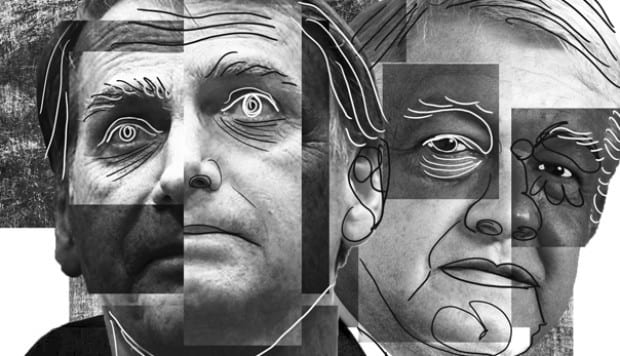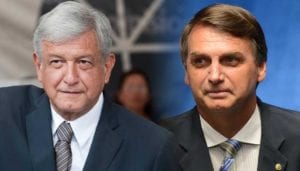
On December 1, Andrés Manuel López Obrador, who won the election of the President of Mexico in July of this year, officially became head of state for the period 2018-2024. López Obrador became the first in the past few years, the president of Mexico with “leftist” views: before that, the country was headed by presidents from the centrist Institutional Revolutionary Party (Spanish – Partido Revolucionario Institucional, PRI) and twice from the right-wing conservative National Action Party (Spanish – Partido Acción Nacional, PAN). However, many international observers point out that the new Mexican president from the “left” keeps to the traditions established by Benito Juárez in the 19th century, yet he left the reformist wing of the Institutional Revolutionary Party. He is an experienced and quite popular politician in the region. López Obrador is a typical product of Mexican political culture, rather than a number of such famous populists from South America, as the ex-leaders of Venezuela and Ecuador: Hugo Chávez and Rafael Correa, or the current president Bolivia Evo Morales.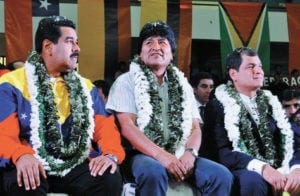
Unlike such populist leaders as Juan Domingo Perón, the same Hugo Chávez or Jair Bolsonaro, López Obrador was never a fan of revolution and coups. Turning to the dramatic past of Mexico, it is worth noting that there is hardly anyone resembling the current leader, although this article is not about populism, it examines a single-party state, which was transformed in a very “tough” way into a democratic one.
Named by the long-awaited “left turn”, the arrival of the populist governments of the “national and popular” sense in the region of Latin America was then the dream of its adherents that came true. However, the task of putting all the “left” governments under one common denominator seems to be very difficult, because as time has shown, some of them were in reality very different and even completely diverse. One way or another, today there are practically no radical “left” in the region, with the exception of Evo Morales in Bolivia and Nicolás Maduro in Venezuela. The latter has moved away from populism itself, which is a form of authoritarian democracy, in order to come closer to its opposite side – dictatorship.
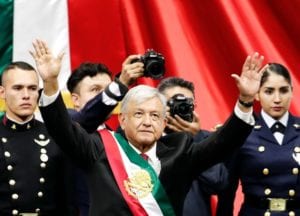
However, it is worth paying attention that none of the leaders considered in this article represents what at first glance seems, and yet they cannot be identified with the two sides of the “same coin”. In the economic sphere, for example, in Mexico, there was no serious alternative to neoliberalism since the 1980s of the XX century, and Bolsonaro in Brazil acted as an ardent defender of the “free market”. The Mexican and Brazilian leaders are, in fact, antagonists, but if López Obrador does not strive for regional, and even more global, domination, then Bolsonaro could act as a “disconnecting person” at the international level. Before taking office, he promised the whole world to follow the policy of Donald Trump, made a reservation about his intention to transfer the Brazilian embassy in Israel to Jerusalem, withdraw from the Paris Agreement, and also “fell” with harsh criticism on the MERCOSUR (Spanish – Mercado Común del Sur).

As a number of political analysts emphasize, Bolsonaro balances on the very border between the fascist dictatorship and the democratic form of populism, especially when he speaks, he vaguely resembles Colonel Perón or Getulio Vargas (much more – Hitler and Mussolini). In turn, López Obrador tries to return to the old traditions and foundations of Mexican politics, especially to those that were laid during the presidency of Lázaro Cárdenas.
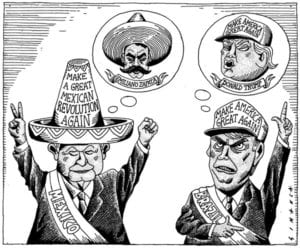
Summing up, it is worth noting that the difference between the new political models in Brazil and Mexico is not the difference between populism in its “left” and “right” versions. The Mexican leader did not conduct an election campaign in the spirit of populism. In turn, during the campaign, Bolsonaro had more fascist slogans than populist slogans. Many representatives of the political elite of Brazil draw attention to the fact that his “myth” lies in the fact that he considers himself an epochal figure, the sole exponent of the will of the Brazilian nation, and often thinks in categories that go beyond political analysis.
At the same time, there are real opportunities for Mexico to strengthen democracy. The immediate future will show whether she can do it, or the Mexicans, led by López Obrador, will miss the chance to “take” a democratic revenge. However, democracy in Mexico is safe, which cannot be said about Brazil since the 1st of January of this year.

